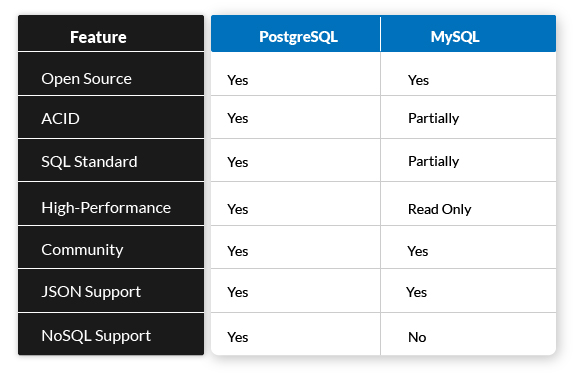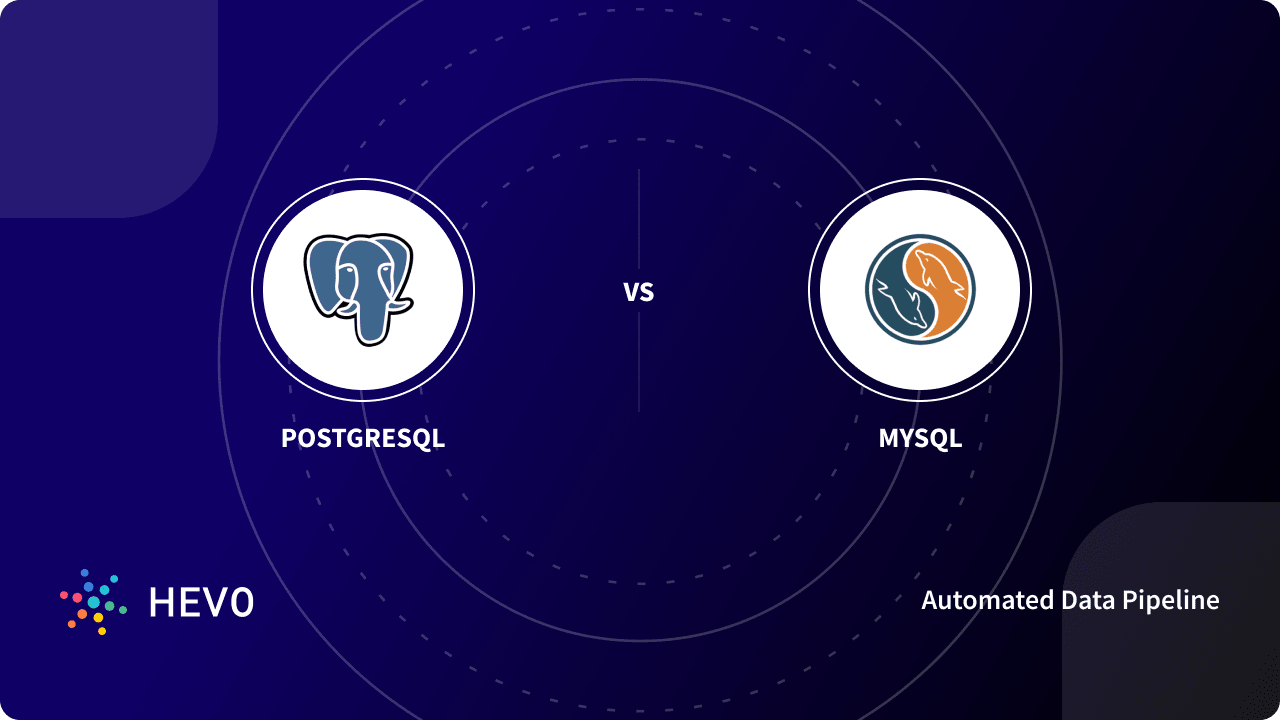
Operating Systems And Programming Languages In these cases, as the learning curve is slightly easier – and MySQL is more widely known – there's really no need in these cases to complicate things by investing in PostgreSQL. MySQL is generally better-suited for web-based projects where your database handles mainly data transactions. PostgreSQL, as we touched on above, has a number of performance enhancers that are unavailable with MySQL, meaning it's also better equipped at more complex queries. In a general sense, PostgreSQL is the better choice for large systems where read/write speeds and data authentication are critical. A lot does depend on circumstance, however. PostgreSQL Vs MySQL Major Differences PerformanceĪll in all, both PostgreSQL and MySQL perform well, so it's hard to call one superior over the other here. Frequent updates and a supportive community make MySQL a reliable option that's simple to learn, even for beginners. Multiple content management systems such as WordPress rely on MySQL. MySQL is often used for scalable web applications as it comes in the standard LAMP stack (this refers to an open-source suite consisting of Linux, Apache, HTTP Server, MySQL, and PhP). Also, the fact it's so popular means it's easy to find employees familiar with MySQL, and there are a lot of online resources to help you troubleshoot issues. While it doesn't sport quite as long a list of features as PostgreSQL, it works well for most general-purpose needs. MySQL is the world's most popular database management system.
POSTGRESQL VS MYSQL FREE
Plus, PostgreSQL is free to use and does not require licenses or contracts. You can basically make your PostgreSQL grow as much as you need. What's the benefit of all this? Postgres tends to handle concurrency better than other options, including MySQL, and is also generally more scalable.


PostgreSQL is also an object-relational database, meaning it includes extra features like table inheritance and function overloading that aren't available in MySQL. This means PostgreSQL – in addition to storing tables and columns – allows you to define data types, index types, and functional languages. You have probably come across the phrase “catalog-driven” when reading up on PostgreSQL.

PostgreSQL can be especially useful for more complicated and high-volume data operations as it comes with much more features than competitors. Below, we'll break down the basics of both services and point out some important differences that could help you decide what's right for you. As there's a lot of overlap in terms of the features and functions of both MySQL vs PostgreSQL, choosing one over the other can get confusing fast. Investing in a database system is an important and at times daunting task. MySQL and PostgreSQL are both very popular and high-performing database services.


 0 kommentar(er)
0 kommentar(er)
